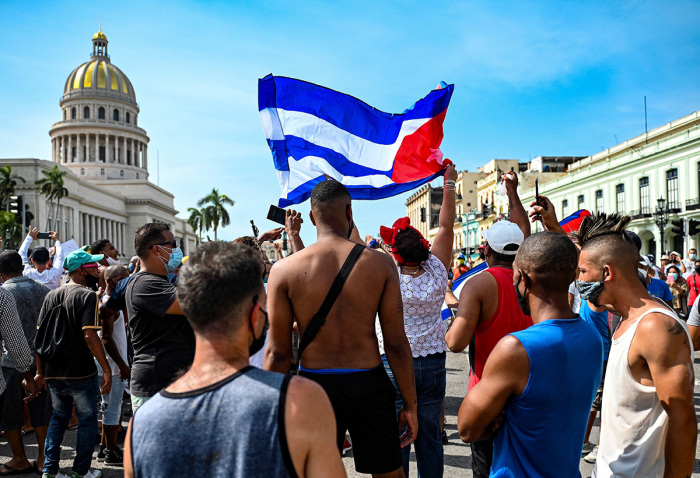World Council of Churches slammed for Cuba trip, claiming gov’t respects religious freedom

The World Council of Churches' recent visit to Cuba, led by General Secretary Rev. Prof. Jerry Pillay, has drawn the ire of religious freedom advocates. Critics say the visit, which included a meeting with Cuban President Miguel Díaz-Canel, overlooked the Cuban government's violations of religious freedom.
Teo Babun, President and CEO of Outreach Aid to the Americas, expressed "serious concerns" about the visit in a Thursday letter to Rev. Pillay, highlighting the Cuban government's systematic violations of religious freedom and citing harassment, threats and imprisonment of faith leaders and parishioners.
"It troubles me that it seems your visit, apparently closely orchestrated by the Cuban government, has failed to provide you an accurate understanding of the state of the fundamental right to freedom of religion or belief in Cuba," Babun wrote. "Worse, we are seeing that the Cuban government is using your visit, and specifically your statements celebrating religious freedom in Cuba, to bolster its absurd claim that Cubans do enjoy this fundamental freedom."
Cuba is listed by the U.S. State Department as a "country of particular concern" for religious freedom. This list also includes some of the world's worst human rights abusers, including but not limited to China, Eritrea, Iran, North Korea and Burma.
According to a survey by OAA, 52 of 56 Cuban independent faith leaders reported regular government repression. The communist regime of Cuba, through the Office of Religious Affairs, favors compliant religious groups while punishing those critical of the regime.
The Christian Post reached out to WCC for comment on Babun's letter. A response is pending.
During his visit from Dec. 17 to 19, Pillay praised Cuba's religious freedom, citing meetings with the Presbyterian Church in Cuba and other churches. He noted a large statue of Christ in Havana as evidence of religious expression. Pillay also emphasized the WCC's stance against the U.S. blockade of Cuba and called for Cuba's removal from the list of countries sponsoring terrorism.
"The WCC 11th Assembly called for the removal of Cuba from the list of countries that sponsor terrorism," said Pillay, according to a WCC statement. "We at the WCC will continue to accompany the churches as prophetic voices of peace, hope, cooperation, and mutual respect."
WCC is an inter-church organization founded in 1948 with several international church bodies as members.
In his first visit to Cuba as WCC general secretary, Pillay "expressed appreciation for religious freedom in Cuba, in particular meeting with foreign affairs minister Bruno Rodríguez Parrilla to talk about the positive relationships between the WCC and religious organizations in Cuba," the statement said.
However, independent organizations like Human Rights Watch, Amnesty International and Open Doors paint a different picture. They report widespread repression, including crackdowns on the Ladies in White, a group of women advocating for imprisoned family members. Pastor Lorenzo Rosales Fajardo and Yoruba leader Loreto Hernández García, both imprisoned for participating in protests, are cited as examples of religious leaders facing mistreatment.
The Cuban Observatory on Human Rights reported over 1,000 repressive actions against religious practice in 2022. A survey by the observation found that 68% of Cubans have experienced or know someone who has faced harassment or repression in practicing their faith.
In addition to placement on the U.S. State Department's religious freedom violators list in 2022, the European Parliament condemned Cuba's human rights abuses against religious leaders.
Open Doors, a Christian watchdog group that monitors persecution in over 60 countries, notes that Cuba's government targets Christian activists and church leaders, often labeling them as "counter-revolutionaries." Churches face difficulties in registration, forcing many to operate illegally. The state's control extends to social issues, with churches forced to comply with new legislation or face threats and monitoring.
In his letter, Babun detailed the Cuban Communist Party's tactics, including physical attacks, detention, property confiscation and restrictions on movement. Babun's organization found that Cuba's laws fail to meet most freedom of religion indicators set by the United Nations.
Pillay's visit and subsequent statements amounted to an endorsement of the Cuban government's narrative on religious freedom, critics say, arguing that these visits, when not accompanied by a critical assessment of the host country's human rights record, can inadvertently lend legitimacy to governments accused of serious violations.




























